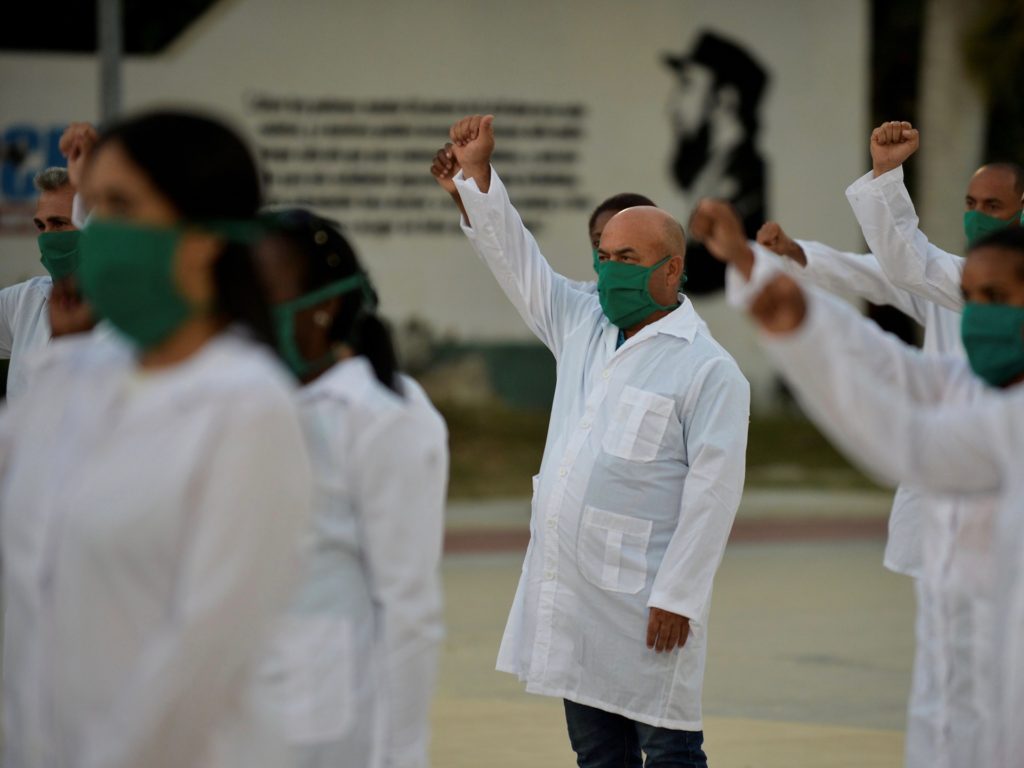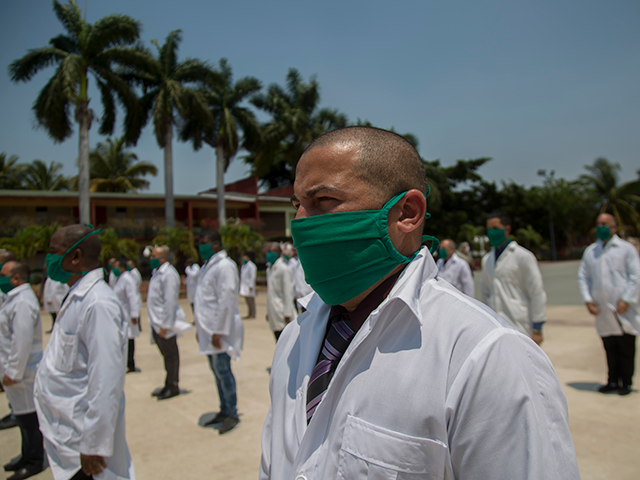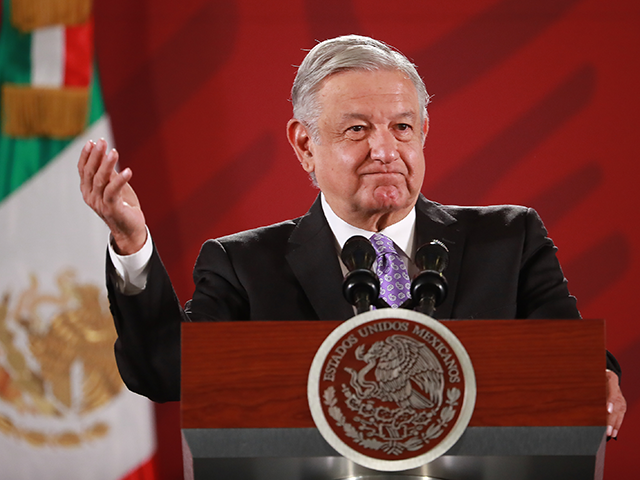Mexican leftist President Andrés Manuel López Obrador announced on Tuesday that his country had imported 700 Cuban slave doctors, who were now active in Mexican hospitals.
The newly announced number adds another 90 to the total of 610 Cuban slave doctors the Mexican Social Security Institute (IMSS) reported in March. Mexico is importing the forced labor as part of an agreement signed in 2022 between Mexico’s IMSS and the communist Castro regime’s Cuban Medical Services Marketer (CSMC), which handles the slave doctor trade.
Selling doctors as forced labor to allied poor countries is a billion-dollar industry for Cuba. Doctors and other health workers who have escaped the human trafficking situation say they often had to falsify medical statistics, were forced to pressure patients into adopting communist ideology, and had their passports confiscated to prevent their escape. Defecting doctors are banned from returning to Cuba for eight years, often meaning the relinquishing of seeing the childhoods of their children left at home during medical “missions.”
During a press conference on Tuesday, López Obrador thanked the communist regime for the doctors. The Mexican president agreed to hire the services of the communist Castro regime’s slave doctors for his “Health Pulse” program during his official visit to Cuba in May 2022. The first group arrived in July of that year.
In August, the Mexican newspaper El Financiero claimed to have obtained access to leaked documents that showed that the Mexican government agreed to pay Cuba roughly $1.2 million per month as part of the agreement in exchange for 610 Cuban slave doctors.

Doctors and nurses of Cuba’s Henry Reeve International Medical Brigade take part in a farewell ceremony before traveling to Andorra to help in the fight against the coronavirus pandemic, at the Central Unit of Medical Cooperation in Havana, on March 28, 2020. (YAMIL LAGE/AFP via Getty Images)
In March, IMSS director Zoé Robledo announced that the initial 610-slave doctor agreement had been expanded, and will see Mexico receive an additional 600 slave doctors.
During the Wuhan coronavirus pandemic, López Obrador’s government paid the Castro regime $6.2 million for a total of 585 Cuban slave doctors and nurses to attend coronavirus patients in 2020. However, the Castro regime reportedly only paid each doctor $660 in food-related expenses for a period of three months, pocketing the rest.
The Cuban slave doctor trade is one of the longest lasting main sources of income for the communist Castro regime, estimated by the Wall Street Journal at $11 billion in 2019.
Despite being widely denounced as “human trafficking” by the Organization of American States (OAS) and other organizations, countries around the world continue to engage in multimillion-dollar agreements with the Castro regime in exchange for slave doctor labor, effectively funding the communist regime — which keeps almost all of the money received in its entirety and only pays each doctor a fraction for their work.
WATCH: 311 Migrants Apprehended on Sinking Boat Off Cuban Coast:
@USCGSoutheast / TwitterCuban doctors sent abroad as part of the slave program are kept under strict vigilance and curfew, with their passports being withheld by regime officials. Additionally, Cuban law forbids them from issuing statements on social media without having authorization, sustaining relations of any kind with persons who “assume positions that are hostile or contrary to the principles” of the communist regime, and even driving without prior authorization.
Should they attempt to defect and seek freedom, the Castro regime will accuse them of the crime of “abandonment of duties” and they can face up to eight years in prison — similarly, those who manage to successfully defect from the slave doctor program are banned from returning to Cuba for eight years.
Cuban doctors who have managed to successfully flee from the human trafficking program have denounced that the Castro regime forced them to produce falsified medical data and destroy medicine to prop up the program and help sell the “success” of Cuba’s healthcare system.
In reality, and like much of Cuba’s infrastructure, the island nation’s healthcare system is in its worst state ever after six decades of communist mismanagement. Widespread shortages of even the most basic medicines are commonplace, with many Cubans having to pay hefty amounts of cash to find them through black markets. Cuba’s hospitals also continue to face staff shortages as personnel continue to flee from the country due to the inhumane conditions that they must live and work in.


COMMENTS
Please let us know if you're having issues with commenting.